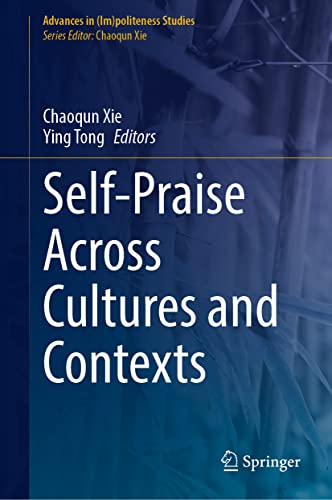

Most ebook files are in PDF format, so you can easily read them using various software such as Foxit Reader or directly on the Google Chrome browser.
Some ebook files are released by publishers in other formats such as .awz, .mobi, .epub, .fb2, etc. You may need to install specific software to read these formats on mobile/PC, such as Calibre.
Please read the tutorial at this link: https://ebookbell.com/faq
We offer FREE conversion to the popular formats you request; however, this may take some time. Therefore, right after payment, please email us, and we will try to provide the service as quickly as possible.
For some exceptional file formats or broken links (if any), please refrain from opening any disputes. Instead, email us first, and we will try to assist within a maximum of 6 hours.
EbookBell Team

4.1
30 reviewsThis book explores the extent to which self-praise is acceptable in both offline and online contexts, across different genres, platforms, and cultural backgrounds. The data analyzed encompass both naturally occurring (daily conversation as well as institutional talk) and elicited (experiments and interviews) types, and are explored at both quantitative and qualitative levels to offer a relatively systematic and comprehensive inquiry into self-praise as social (inter)action.
Contributors to this book not only draw on traditional politeness theories but are also informed by social psychology, interactional sociolinguistics, CMC, and (multimodal) discourse analysis. They are inspired by pragmatics but also go beyond to ground their studies within locally situated cultural contexts, most of which are under-presented in the current academic world. Their efforts substantiate the fact that self-praise is most worthy of intensive analytic attention. This book appeals to students and researchers in the field and contributes to the way communication is facilitated through different ways of deploying linguistic and interactional resources.